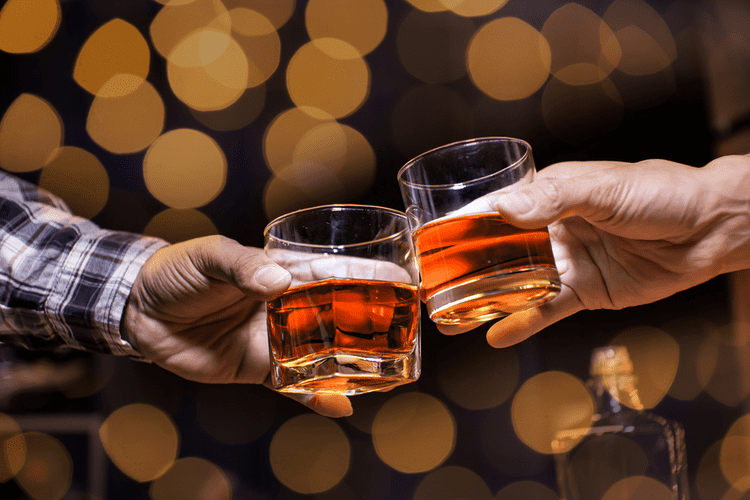The following advice can help you no matter where you are in the recovery process. Many people suffering from addiction don’t know where to seek help or how to recover. They may have failed to recover on their own and believe recovery is impossible.
Careers – Join Our Team
And they can help plan healthy joint activities to ensure that there are good days. Brains are plastic—they adapt to experience—and people can change and grow, develop an array of strategies for coping with life’s challenges and stressors, find new means of satisfaction and reward, and negotiate life ahead. Millions of people do, whether http://kainsksib.ru/123/index.php?showtopic=2264&st=40 they were once compulsive users of opiates, alcohol, or gambling. There is enduring resolution of what once was problem behavior. After discussion with you, your health care provider may recommend medicine as part of your treatment for opioid addiction. Medicines don’t cure your opioid addiction, but they can help in your recovery.

action: ‘healthbeat’
- This may include attending regular in-person support groups or online meetings to help keep your recovery on track.
- Through the recovery process, behavior again begins to align with their values and goals.
- • Developing a detailed relapse prevention plan and keeping it in a convenient place for quick access when cravings hit, which helps guard against relapse in the future.
Laurel stressed that Savage Sisters’ housing operations are separate from its harm reduction program, such as its mobile syringe exchange services. The organization’s drop-in storefront in Kensington has also seen opposition from lawmakers in Philadelphia. Sarah Laurel, executive director of Savage Sisters, blames https://cenzure.net/pagescat/8/216/25/ stigma against addiction and recovery homes for the opposition to the Havertown expansion. Some community members have suggested the nonprofit move its recovery home to a nearby mixed-use commercial area, according to Savage Sisters; but the nonprofit said such an environment is not ideal for supporting recovery.
Meeting People Where They Are
Planning in advance a way out of high-risk situations—whether an event, a place, or a person—helps support intentions in the face of triggers to use. Evergreen Treatment Services is an award finalist re-envisioning their proposal following winter flooding that impacted two Seattle-based facilities. While developing a new proposal, ETS will launch a new mobile clinic this summer with an additional $1 million City investment.
Many, though not all, self-help support groups use the 12-step model first developed by Alcoholics Anonymous. Self-help support groups, such as Narcotics Anonymous, help people who are addicted to drugs. Post-rehab programs and resources at the Hazelden Betty Ford Foundation are designed to guide you through the challenges of early recovery, strengthening your recovery for the distance. Addiction recovery means so much more than abstaining from the use of alcohol or other drugs. Look for things that will help occupy your time and keep your mind off of drug cravings. Even simple things like talking to a friend, watching a television show, reading a book, or going for a walk can provide a sufficient distraction while you wait for a craving to pass.
Avoid Relapse
Yet one more acronym captures the skills people actually deploy to successfully navigate the tricky terrain of early recovery. It’s DEADS, for delay, escape, avoid, distract, and substitute. When, for example, cravings hit, a helpful strategy is to self-negotiate a delay of use.
- The large, single-family house is around the corner from the iconic Llanerch Diner.
- “Building buildings is not what we want” from the opioid settlement funds, Russell said.
- Finding ways to address these feelings as they arise is an essential component to your treatment and recovery.
- For certain drug types, some symptoms are less prominent, and in some cases, not all symptoms apply.
- Building relationships with some of these groups takes persistence and patience, toward improving their impact on people’s lives, he says.
- Like many other chronic conditions, treatment is available for substance use disorders.
The National Recovery Month webpage provides a host of resources that can be used to help promote the observance. Research and clinical experience have identified a number of factors that promote recovery. Another is reorienting the brain circuitry of desire—finding or rediscovering a passion or pursuit that gives meaning to life and furnishes personal goals that are capable of supplanting the desire for drugs. A third is establishing and maintaining a strong sense of connection to others; support helps people stay on track, and it helps retune the neural circuits of desire and goal-pursuit.
Recovery from a substance use disorder is defined as a process of improved physical, psychological, and social well-being and health after having suffered from a substance-related condition. A lot can be at stake in a relapse, including life itself; doing whatever is necessary to ensure a way out of high-risk situations is essential. Having a “parachute” ready for such eventualities takes a little preparation and knowledge that some situations https://guruken.ru/guruken/ponty (such as a social event or party) will in fact be high risk. Strategically avoiding an event, a person, or a situation with a polite excuse can yield lifesaving dividends, especially early in recovery. In the first stage, precontemplation, substance users are largely unaware that their alcohol or drug use is causing problems. But to others around them, it may be very clear that substance use is costing more than just money.
